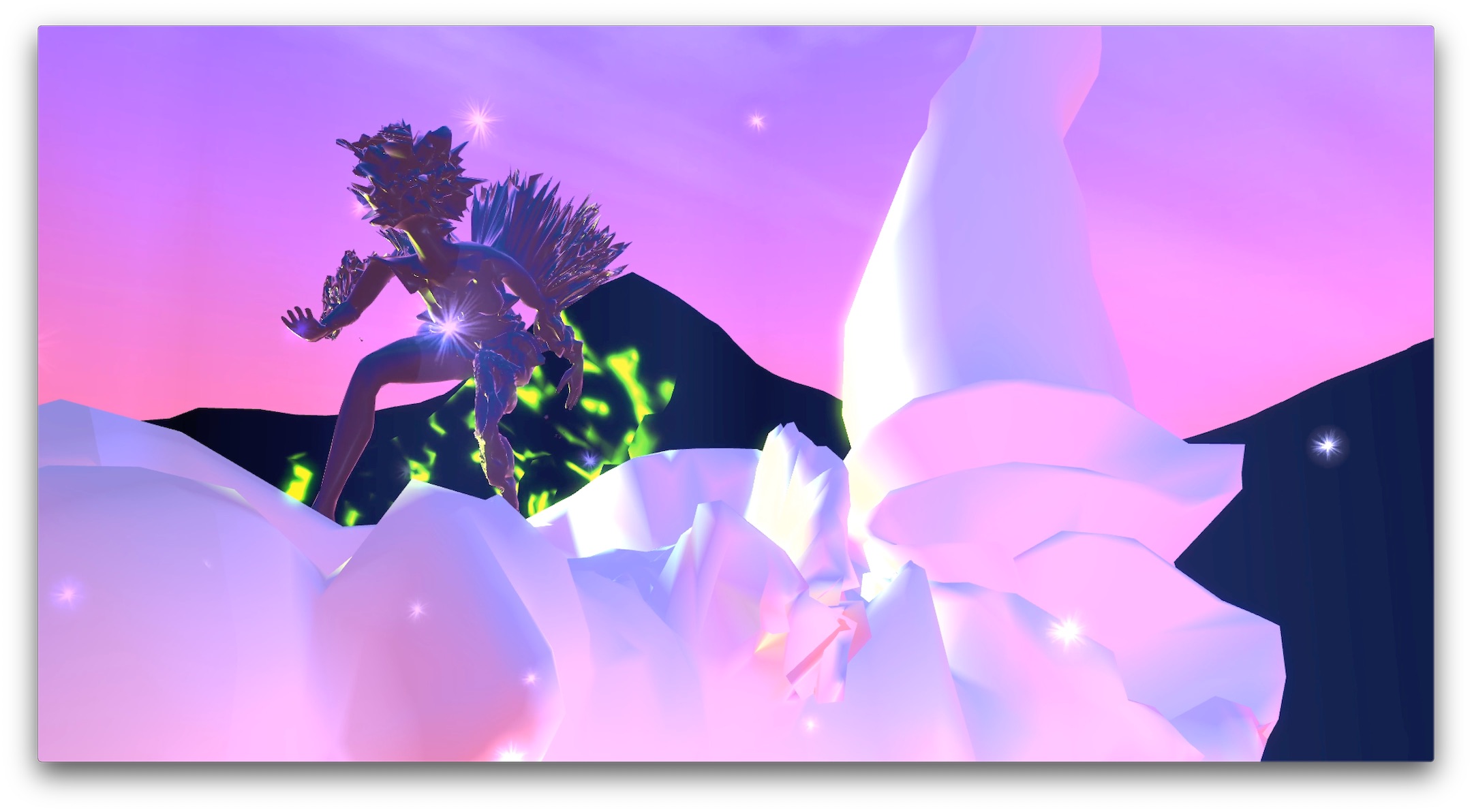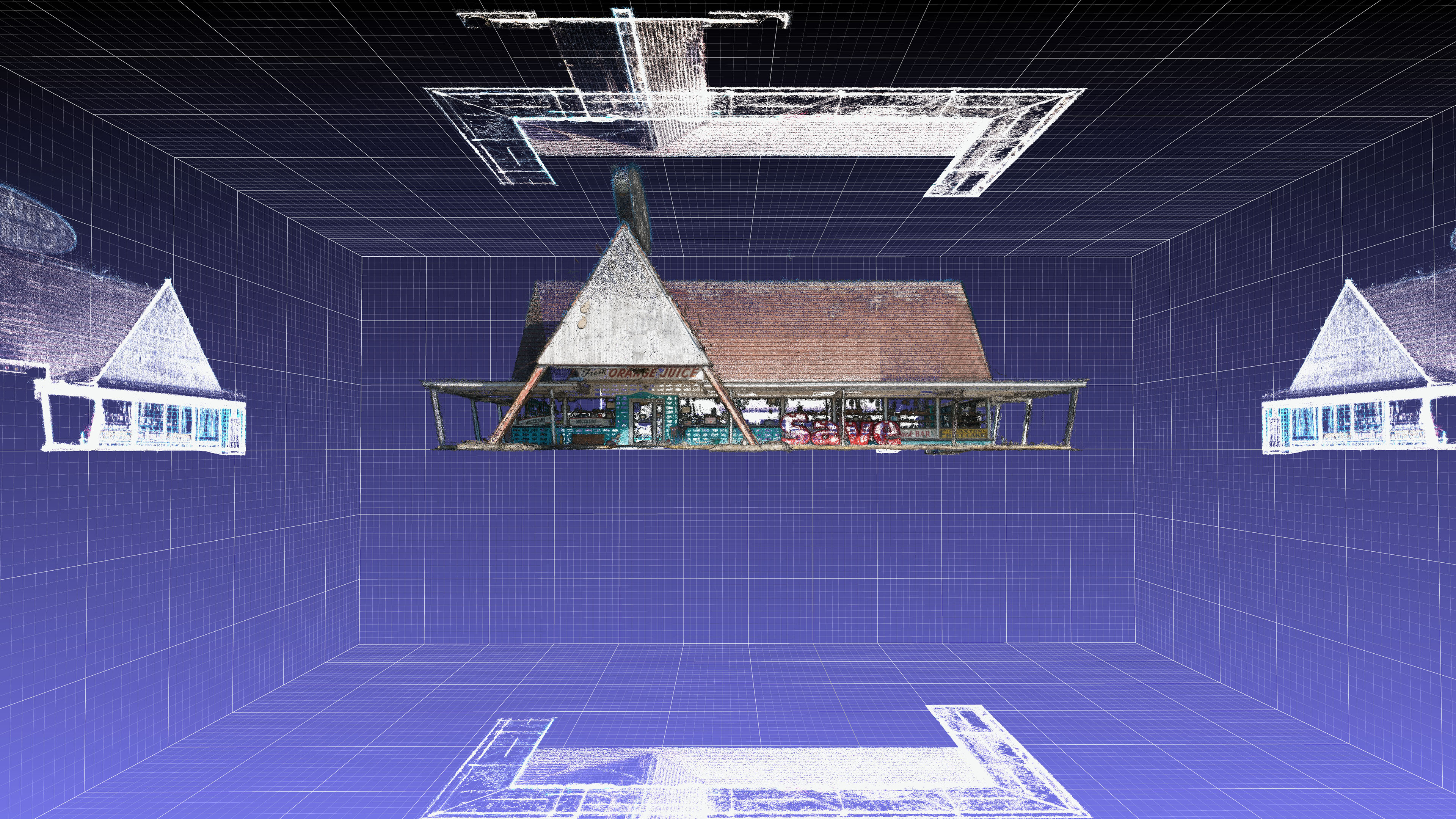
Digital Media Workshop
ART GAMES
The game engine as method of artistic production.
Years taught: 2009, 2011, 2012, 2020
-
UF Catalog
Bridges the study of digital media and broadly envisioned professional practices in the field. Emphasis on portfolio and project development for transition to advanced study or professional, expressive or applied practices in integrated media.
-
Course Description
ART 4612C/6925C Digital Media Workshop is a revolving topics, studio workshop. This semester we will focus on the Game Engine as a method of artistic production. We will NOT be creating "games" as a commercial entertainment form, but will look at how the ideas and methods of gaming can be utilized in art practice. Unlike how it might be taught in a "design program", as artists, our concerns could just as easily involve breaking the notion of the game as reinforcing it. We will study current artists who produce work in this manner, and we will become familiar with contemporary game studies/theory. Some may choose to create work that use the tools in a limited fashion as a visualization technique, while others may choose to investigate the form, self-reflexively, as a critical intervention. In any case, the goal is to use the game engine in an experimental way that transgresses our current expectations of the "videogame".
The class is project-based and students will propose work that explores their own practice using the video game engine as a medium. Sample project ideas include but are not limited to: simulations, networked experiences, spatialized audio, place visualization, info-viz, general research, interactivity experiments, etc. Experience with 3d modeling and/or programming will be beneficial, but not required.
-
Course Details
Credits: 3; Prereq: ART 2620C (Net Art) or with permission of faculty.
Jack Stenner, Ph.D Associate Professor, Art + Technology Office: FAC 304 Office Hours: Th 11:30am-12:30pm 352.213.0997 stenner@ufl.edu Undergraduate: ART 4612c Section 2893 Graduate: ART 6925c Section 8259 Class: ONLINE - See UF Canvas for Zoom links/info. Time: T/Th 8:30AM - 11:30AM Website: http://jackstenner.com/teaching/art-games Listserv: Class contact will be made through UF Canvas.
Objectives
Over the course of the semester, the goal is to help you develop your art practice in the following ways:
Game Studies
Become aware of the foundation and history of game studies.
Analysis
Learn to analyze and evaluate works from an informed point-of-view.
Criticality
Engage in meaningful discussion and develop a sense of criticality.
Integration
Select digital processes appropriate to artistic concepts.
Communicate
Propose ideas in a way that clearly demonstrates intent.
FUN
Have FUN!
-
Attendance
Requirements for class attendance and make-up exams, assignments, and other work in this course are consistent with university policies that can be found at:
https://catalog.ufl.edu/ugrad/current/regulations/info/attendance.aspx.Because of Covid-19, classes will be held via Zoom this semester. Links to the Zoom meetings are located on the course Canvas page. It is critical that you attend class in this manner and at these times in order to keep up with the course.
-
Grades
Grades will be based 95% on projects, reviews, and class assignments. 5% will be based on class participation. See below for the breakdown. You are expected to constructively criticize your peers. Constructive criticism is considered a part of your class participation.
Detailed, specific info on grades and grading can be found at:
https://catalog.ufl.edu/UGRD/academic-regulations/grades-grading-policies/Notwithstanding the description of grades above, generally, grades are conceived in this way:
A(Excellent) Student’s work is of exceptional quality and the solutions to problems show a depth of understanding of the program requirements. Project is fully developed and presented well both orally and graphically. Student has developed a strong and appropriate concept that clearly enhances the overall solution. The full potential of the problem has been realized and demonstrated.
B(Good) Student’s work shows above average understanding and clear potential. All program requirements are fulfilled and clearly and concisely presented.
C(Fair) Student’s work meets minimum objectives of course and solves major problem requirements. Work shows normal understanding and effort. Quality of project as well as the development of knowledge and skills is average.
D(Poor) Student’s work shows limited understanding and/or effort. Minimum problem requirements have not been met. Quality of project or performance as well as development of knowledge and skills is below average.
F(Failure) Student’s work is unresolved, incomplete and/or unclear. Minimum course objectives or project requirements are not met, and student’s work shows lack of understanding and/or effort. Quality of project or performance is not acceptable.
Instructor’s evaluation of student’s interest, motivation, attendance, proficiency and overall development or improvement during the semester will be taken into consideration in determining the final course grade. This syllabus is subject to refinement and development throughout the semester based on feedback and class interaction. Policies and grading criteria are absolute and will not change. Any substantial changes will be discussed with the class prior to implementation.
Grading breakdown:
Project 1 = 10% Project 2 = 15% Project 3 = 25% Project 4 = 15% Progress Review 1 = 6% Progress Review 2 = 6% Progress Review 3 = 6% Assignments (12): 1% ea. = 12% Participation = 5%
-
Evaluation
Students are expected to provide feedback on the quality of instruction in this course by completing online evaluations at https://evaluations.ufl.edu. Evaluations are typically open during the last two or three weeks of the semester, but students will be given specific times when they are open. Summary results of these assessments are available to students at https://evaluations.ufl.edu/results/.
-
Covid-19
Due to Covid-19, the course this semester will be delivered synchronously, online. You will join the class at the prescribed time via Zoom. If you have hardware or software issues, you need to contact Teaching Lab Specialist, Michael Christopher, and coordinate use of equipment provided on campus. Our class sessions may be audio visually recorded for students in the class to refer back and for enrolled students who are unable to attend live. Students who participate with their camera engaged or utilize a profile image are agreeing to have their video or image recorded. If you are unwilling to consent to have your profile or video image recorded, be sure to keep your camera off and do not use a profile image. Likewise, students who un-mute during class and participate orally are agreeing to have their voices recorded. If you are not willing to consent to have your voice recorded during class, you will need to keep your mute button activated and communicate exclusively using the "chat" feature, which allows students to type questions and comments live. The chat will not be recorded or shared. As in all courses, unauthorized recording and unauthorized sharing of recorded materials is prohibited.
-
Materials/Fees
Required materials will depend on the proposed projects submitted by students. Students will design projects and set budgets based on the goals of the work. See the Schedule of Courses for any attendant fees related to this course.
-
Readings
Readings will consist of .pdfs and URLs available on the class website.
-
Policies
Be sure to read the University of Florida Policies regarding academic honesty, the honor code, accomodations for students with disabilities, wellness, computer use and acceptable use policy, disruptive behavior, health and safety, email and communications, and late work policy.
Projects


